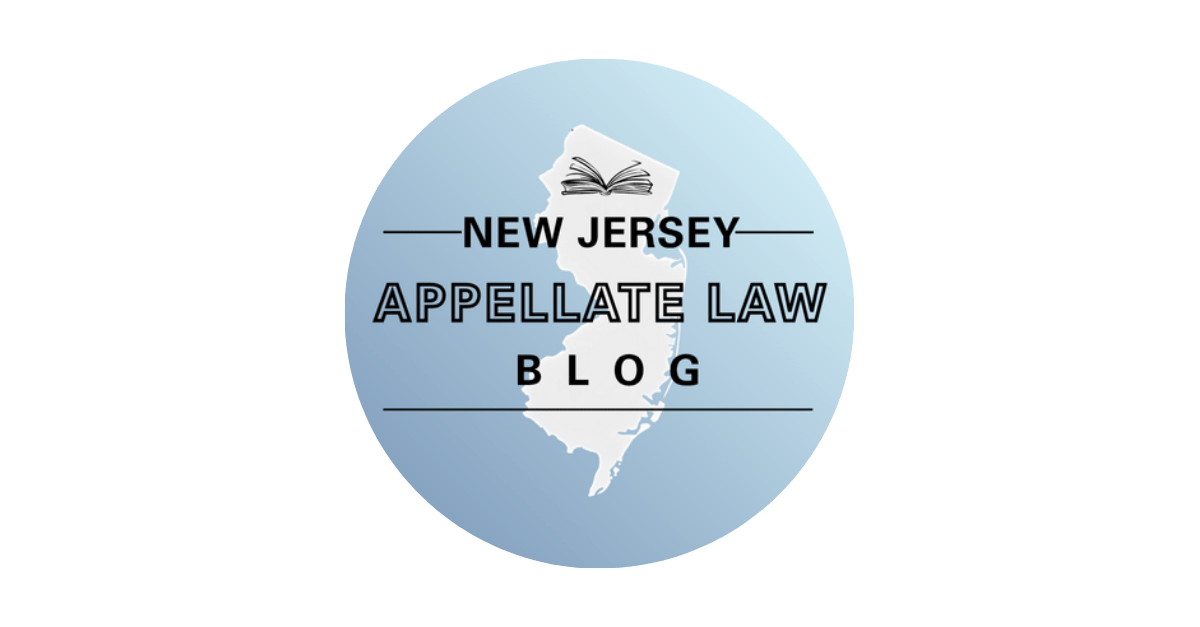The 2024-25 Term ends on August 29. In this penultimate week of the Term, there were no Supreme Court opinions. There were, however, two published decisions from the Appellate Division, one a civil case involving "the latest development in the ongoing controversy surrounding black bear hunting in New Jersey" and the other a criminal appeal centering on constitutional rights associated with a cellphone passcode. Here are summaries of those opinions:...
Chipola v. Flannery, ___ N.J. ___ (2025). As discussed here, this case was one of two that the Supreme Court agreed to review in its first grants of review of the current Term. The question presented was "Does a claim alleging false light invasion of privacy have a one-year statute of limitations, see Swan v. Boardwalk Regency Corp., 407 N.J. Super. 108 (App. Div 2009)?" Today, agreeing with the Law Division and the Appellate Division, the Supreme Court answered "yes."...
State v. Kelly, ___ N.J. Super. ___ (App. Div. 2025). Judge Gummer wrote the panel's opinion in this case. The panel reversed defendant's conviction on weapons and criminal restraint charges, based on a set of facts remarkably similar to those in State v. Daniels, 182 N.J. 80 (2004)....
State v. Hernandez-Peralta, ___ N.J. ___ (2025). Justice Wainer Apter's decision today for a 5-2 Supreme Court majority began by phrasing the issue presented. "In this appeal, we consider whether sentencing counsel was constitutionally ineffective for failing to investigate defendant's citizenship status beyond asking him if he was a United States citizen and receiving an unequivocal ‘yes,' and therefore not advising him that his plea could make him subject to deportation." The majority found, based on the particular facts, that counsel was not constitutionally ineffective, reversing the two lower courts. Justice Noriega, joined by Justice Fasciale, dissented....
Englewood Hospital & Medical Center v. State, ___ N.J. ___ (2025). New Jersey has had a charity care program, in one form or another, for 178 years. As Justice Fasciale summarized the current charity care program in his opinion for a unanimous Supreme Court, under the current program "hospitals cannot turn away a patient for inability to pay, N.J.S.A. 26:2H-18.64, and patients who qualify for charity care shall not be billed for services rendered, N.J.A.C. 10:52-11.4. Instead, ‘disproportionate share hospitals' (DSHs), or hospitals that serve a disproportionate number of low-income patients, see N.J.S.A. 26:2H-18.52, receive annual subsidies from the Health Care Subsidy Fund (HCSF) in exchange for providing charity care, see N.J.S.A. 26:2H-18.52, .58, .58d."...
When this blog began, in October 2010, it covered goings-on in the Supreme Court of New Jersey, the Appellate Division, and the Third Circuit Court of Appeals, with occasional posts about the Supreme Court of the United States. That continued for many years. More recently, however, it became too difficult to keep up with all of those three courts, and coverage of the Third Circuit disappeared virtually entirely. But since the Supreme Court and the Appellate Division have not published many decisions recently (a circumstance that is certain to change shortly), this blog will resume covering the Third Circuit at least on occasion, beginning today....
On this date in 1952, the Supreme Court issued its opinion in Savarese v. Pyrene Manufacturing Co., 9 N.J. 595 (1952). Justice Wachenfeld's decision for a 5-0 Court remains the leading authority on whether and when employment contracts for life are enforceable....
In re Opinion No. 735 of the Supreme Court Advisory Committee on Professional Ethics, ___ N.J. ___ (2025). [Disclosure: I represented an amicus curiae in this appeal]. As Justice Noriega said in his opinion for a 5-1 majority (Justice Pierre-Louis did not participate), this appeal "presents the narrow question of whether it is permissible under the Rules of Professional Conduct (RPC) for an attorney or law firm to purchase a competing attorney's or law firm's name as a keyword." The Court found it permissible, with a caveat. Justice Fasciale dissented....
On Tuesday, April 29, judges on Part F of the Appellate Division will hear oral argument in Newport Associates Development Co. v. Chubb Ins. Co. The appeal arises out of the denial by the Law Division of the motion of defendant AIG Specialty Insurance Company ("ASIC") to compel arbitration of plaintiffs' claim for indemnity in connection with underlying litigation with Consolidated Edison Company of New York, Inc. and Public Service Electric and Gas Company. The Law Division held that ASIC had waived its contractual right to demand arbitration....
The Appellate Division issued four published opinions this week. Here are summaries:...

